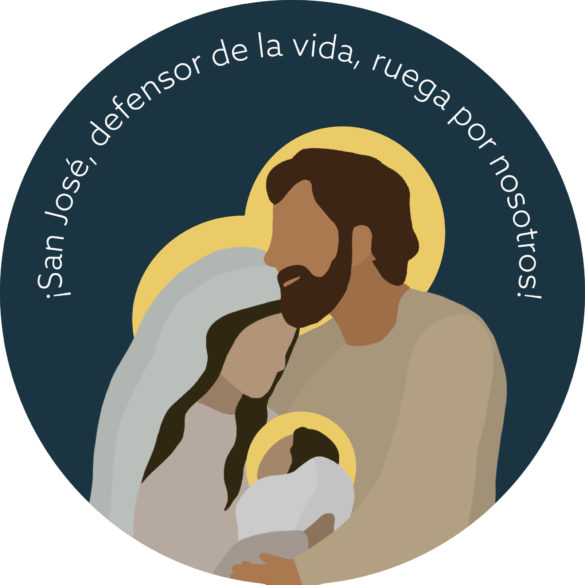By Bishop Joseph R. Kopacz, D.D.
Later this month on the Feast of Christ the King, the Diocese of Jackson will begin a Year of the Eucharist that is more than timely as we continue steadily to welcome back to Mass our Catholic faithful to take up their rightful place as members of the Body of Christ. We are not quite back to pre-pandemic numbers and vigor, but we have made significant strides. For active Catholics the sacrifice of the Mass is always the cornerstone for our faith in the crucified and risen Lord, and also at times the fertile ground for controversy in the modern era.
The first document of the Second Vatican council to be passed and presented to the Catholic world was Sacrosanctum Concilium by the near unanimous vote of 2174 to 4. This was Dec. 4, 1963, and in this document on the Sacred Liturgy that had priority of place among the eventual 16 documents of the Council, we read that the Council Fathers desired to “impart an ever increasing vigor to the Christian life of the faithful and to foster whatever can promote union among all who believe in Christ.”

It’s not surprising that they and we look to the celebration of the Eucharist, the sacrifice of the Mass, to strengthen the bonds of unity that should always be a labor of love among the children of God, perhaps especially in our generation. Furthermore, the council fathers stated that “the liturgy, through which the work of our redemption is accomplished, most of all in the divine sacrifice of the Eucharist, is the outstanding means whereby the faithful may express in their lives, and manifest to others, the mystery of Christ and the real nature of the true church.”
One of the well-known quotes of the Vatican Council came from this document. “The liturgy is the summit toward which the activity of the church is directed; at the same time it is the font from which all her power flows.”
This power of God’s undying love first flowed in the water and blood from the broken body and pierced side of Jesus on the Cross. These were the headwaters of the sacramental life of the church, specifically Baptism and the Eucharist, that have become a mighty river flowing through time.
The one priesthood of Jesus Christ begun on the Cross, is given birth at every baptism, and made manifest in the gathering of the People of God at Mass in Word and in Sacrament. Through Baptism and Holy Orders, the two forms of the priesthood, laity and ordained, become one as the Body of Christ gathering around the tables of Word and Sacrament, the Body and Blood of the Lord. The eyes of faith give us the privilege of seeing and celebrating this unbreakable bond between heaven and earth, the most exalted unity that is possible in this world. We become one with the ascended Lord Jesus to give praise to God the Father, in order to better fulfill our mission of salvation, and to build up God’s Kingdom on Earth, a kingdom of life, justice and peace. Indeed, this is the font from which our power flows.
Is this upcoming “Year of the Eucharist” a good fit with the recently proclaimed world-wide process of the Synod on Synodality? We respond with an unqualified yes, knowing that the theme for the Synod is “Communion, Participation and Mission,” which is solidly Eucharistic in purpose and process. As in the Liturgy, we want the voices of our Catholic faithful to be raised in dialogue throughout the Synod process.
The following quotations from Sacrosanctum Concilium illuminate a clear path for us for the Synod to sow the seeds that will provide an abundant harvest. “Mother Church earnestly desires that all the faithful should be led to that fully conscious, and active participation in liturgical celebrations which is demanded by the very nature of the liturgy. Such participation by the Christian people as “a chosen race, a royal priesthood, a holy nation, a redeemed people (1 Pet. 2:9; cf. 2:4-5), is their right and duty by reason of their baptism.” Likewise, we pray to approach the Synod as disciples of the Lord through fully conscious and active participation as a redeemed people seeking that unity for which Jesus ardently prays, allowing the Holy Spirit to bless and surprise us.
Finally, let us allow the dialogue and silence that are essential for our liturgical prayer as stated in the final quote from Sacrosanctum Concilium, resonate in our hearts and minds as we approach the Synod on Synodality.
“To promote active participation, the people should be encouraged to take part by means of acclamations, responses, psalmody, antiphons, and songs, as well as by actions, gestures, and bodily attitudes. And at the proper times all should observe a reverent silence.”
Through voices raised in dialogue, attitudes shaped by prayer, and silence cultivated out of respect for one another, we will experience a deeper sense of communion, participation and mission. Perhaps, we will achieve a harmony and solidarity under the guidance of the Holy Spirit at the level of 2174 to 4.


